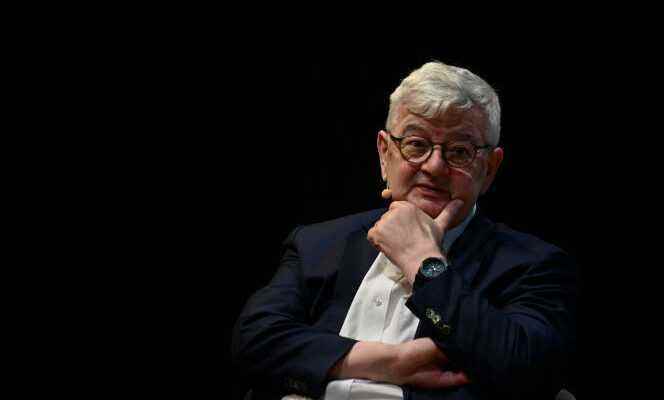Former leader of the German Greens, Joschka Fischer was foreign minister in the governments led by Gerhard Schröder between 1998 and 2005. Retired from political life, the former vice-chancellor remains a major figure in public debate in Germany. His latest book, Zeitenbruch (Kiepenheuer & Witsch, 144 pages, 16 euros, untranslated), devoted to the geopolitical consequences of climate change, was published in March.
After you left the government in 2005, you founded an agency to advise companies in their ecological transformation. Why ?
Originally, the Greens were considered an esoteric sect. This evolved as they participated in regional governments, then at the federal level from 1998. But relations with industry remained very tense for a long time. Then the ecological themes gradually imposed themselves, binding international agreements were signed. And the question of the role of industry in ecological transformation has arisen. We had to build new strategies, fight against the wall of prejudice. That’s what we got down to.
How did the German Greens accept that the market and growth can be compatible with the ecological transition?
Within the party, very ideological debates were conducted in the 1990s. But not afterwards. No one wanted to go back to that situation because it was horrible. We agreed on the fact that we need a strong social commitment, and that a solid social state is essential to organize the regulatory framework for ecological transformation. When you take part in a government, you experience the importance of having a parliamentary majority to get texts passed. It played a big role. When, in 2005, the Greens returned to the opposition, I thought they would become more radical. It was not the case. Realism imposed itself little by little, until today.
The Fridays for Future movement has had a lot of success in Germany, being more radical. Were the Greens overwhelmed at that time?
No. It was a very positive experience. I do not share the radicalism of Fridays for Future. My experience tells me that when you want to change the world, you have to go through the difficult path of forming majorities. But of course, I completely understand that young people want to put more pressure and say: “Hey, Fischer, you are 75 years old, your life is almost over, your generation and you have lived well, but what the do we have left now? The difference with my generation is that they are not afraid to speak with the industry. In my time, industry was Dracula. Garlic was thrown at them.
You have 36.59% of this article left to read. The following is for subscribers only.
